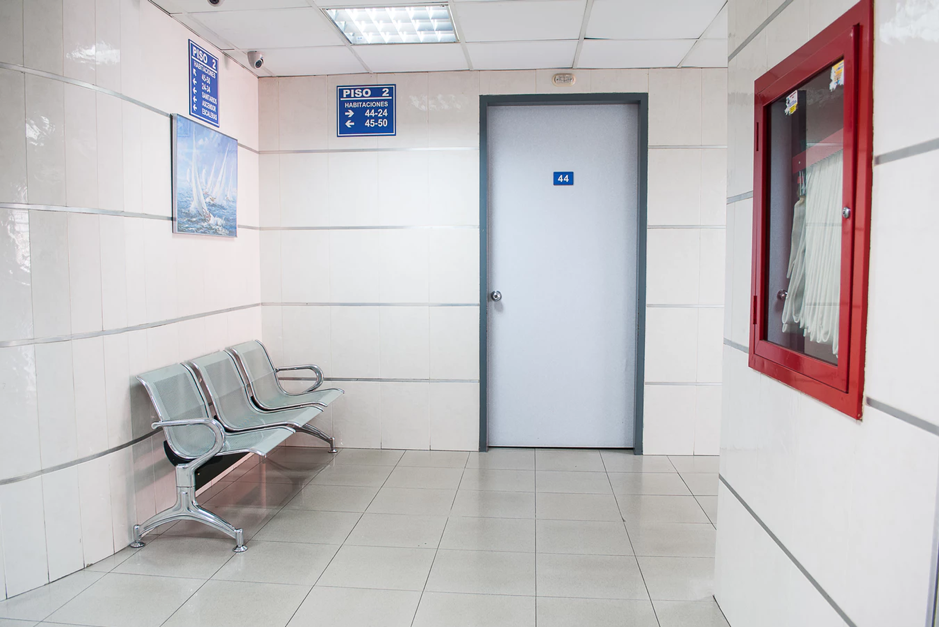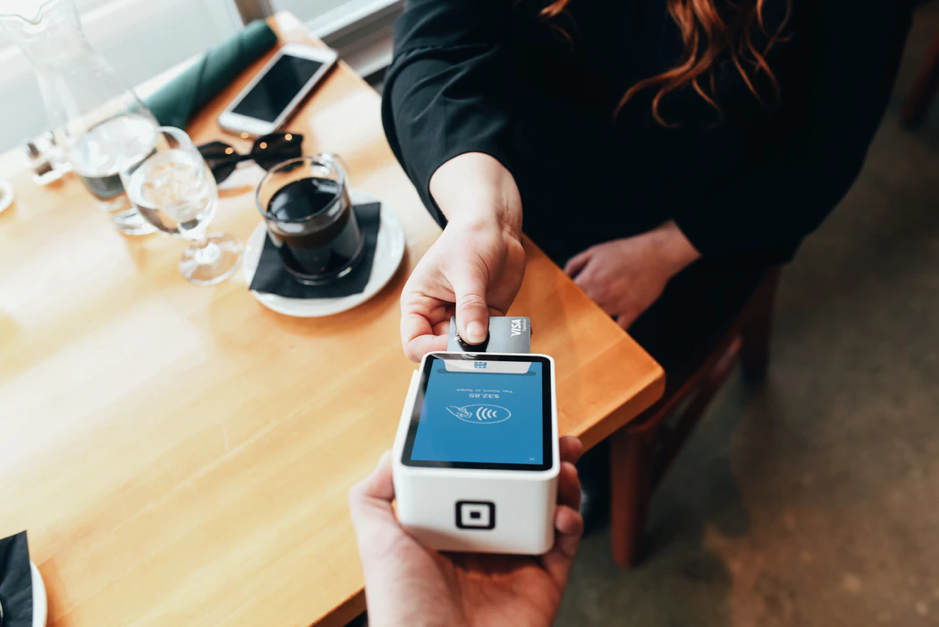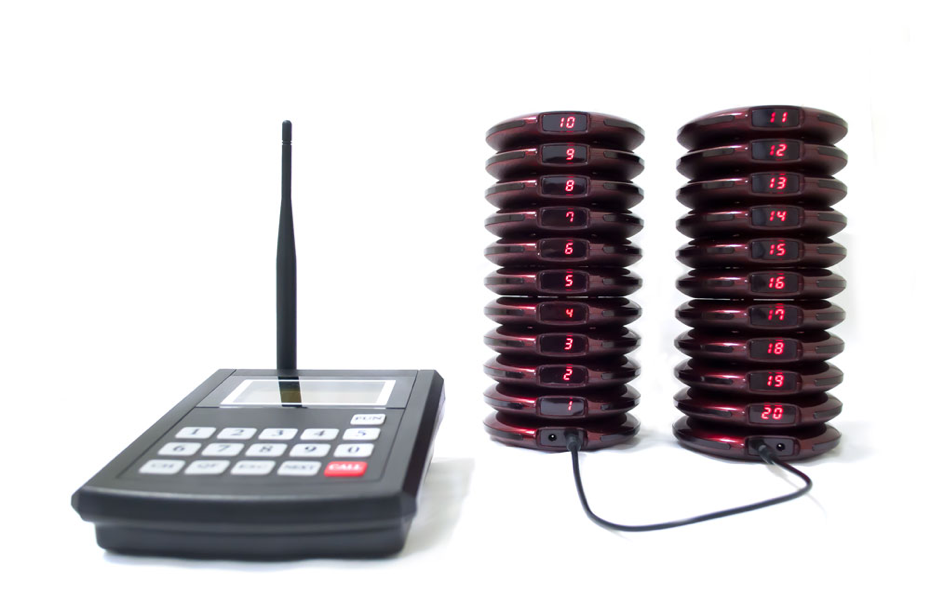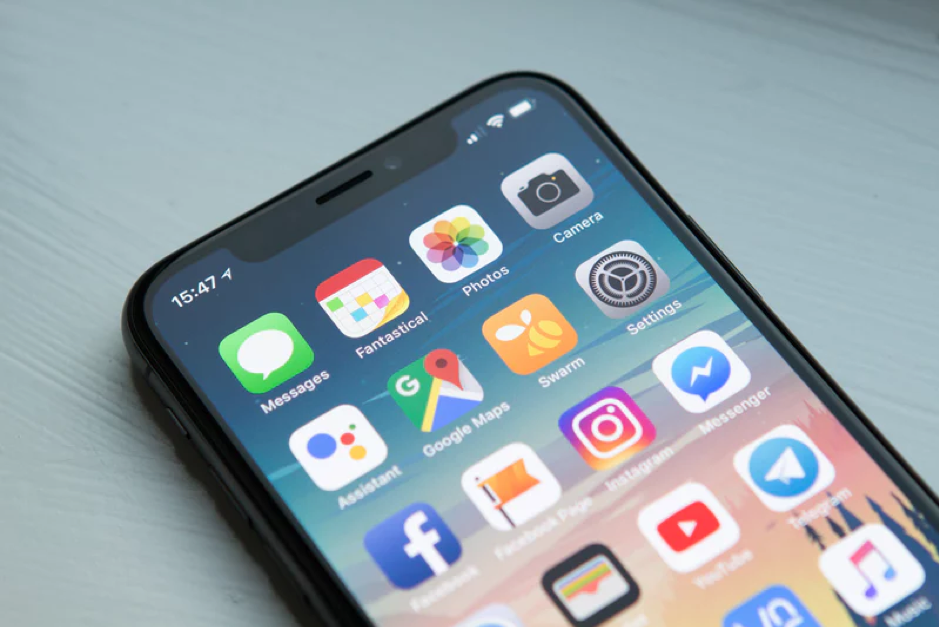
Have you ever found yourself standing in a queue that seemed to drag on for hours? Or spent ten minutes trying to wave at a waiter to get his attention? Perhaps if you’re a chef, you’re tired of calling the waiters to serve the food that has just been cooked and is ready to be served?
If you answered yes to any of the above questions, or have been stuck in similar situations, it’s probably time you get a wireless paging system for your business. You’ve seen wireless paging systems used in restaurants, cafes and even hawker centres – but do you know that they can be used across various industries as well? Here are some examples.
A few years ago, we wrote a blog post about the benefits of wireless paging systems. This time, we’ve provided both pros and cons for a more in-depth perspective.
Pros
1. Save time and energy

Imagine this. It’s 2am and you wake up in your hospital bed with a 39ºC fever. With no nurse or doctor in sight, you can’t call out to anyone for help. But at the corner of your eye, you realise that you can press a button to page and call for assistance. Within minutes, someone is by your bedside – all you had to do was lift a finger.
The main benefit of using paging and calling systems is arguably the time and energy that can be saved. In the above scenario, you wouldn’t have to struggle to get out of bed and walk around in search for help. The hospital staff can also reduce the rounds they have to take to check on the patients.
You can also picture a more relatable scenario: customers no longer have to queue to enter an eatery and employees no longer have to verbally call and shout for customers to collect their food. Employees in a restaurant will also no longer need to walk back and forth trying to get seats for queueing customers while having to serve freshly cooked food to those already seated. By using pagers to discreetly notify the receiving parties, staff can direct their efforts towards more demanding aspects of the business.
2. Enhance business efficiency

The above examples illustrate how wireless paging systems can enhance business efficiency and create a positive customer experience. With almost immediate service rendered, customer satisfaction will undoubtedly increase and possibly result in brand loyalty. Even though being a patient in a hospital is a less than ideal situation, knowing that you’re in the care of hospital staff who will promptly respond to your medical needs is reassuring.
Regardless of which wireless paging system is used, each is also generally simple to operate on both the sending and receiving ends as all that needs to be done is the push of a few buttons. These systems are also relatively low maintenance and require a power recharge at least once every two days – 10 to 25 chargers can even be charged at once!
3. No Internet connection required

Wireless paging systems operate on radio frequency, with no internet connection required. Transmitters and the receiving pagers are tuned to the same frequency broadcast, allowing the pagers to accurately receive signals once they are transmitted. Without the need for the Internet, the wireless paging system is virtually foolproof and not susceptible to poor connections and potential broadband breakdowns.
4. Make people feel accountable

Can you believe that there is also a psychological reason involved? When customers are made to hold pagers, they are more likely to stick around and not leave the queue as they tend to feel accountable.
5. Cost savings

Yes, you can actually save by using wireless paging systems! The initial sum may be costly and more pagers need to be purchased with a bigger business, but you’re guaranteed to experience a return on investment by reducing the need for many employees. As compared to having to pay for an employee’s salary every month, you can instead pay a fixed amount for a wireless paging system. For more information on how much you can save using SIGNALGRYD’s products, click here.
Cons
1. Space

Though not a huge problem, sufficient space has to be allocated to paging systems for both storage and charging while keeping the area neat and aesthetically appealing. Our technology has been gradually improving to allow simultaneous and an increasing quantity of pagers to be charged with a single power output and stack.
2. Discourage interactions

In food and beverage establishments, using pagers as a means of queue management and/or self-service collection greatly limits the communication between employees and customers. Because of this, the staff may not be able to identify and acknowledge repeat customers – making it slightly harder to reward their loyalty.
3. Additional weight and limited signal range

Using pagers brings about unnecessary additional weight to your staff and customers (where applicable). Having to carry these devices around may be troublesome and there is also a risk that people may lose them. Furthermore, pagers have a limited signal range. If customers stray too far from the wireless paging system’s transmitter, they will not be able to receive an alert. This defeats part of the purpose of having pagers, which is to allow individuals to roam about as they wait to be served.
How about a Waitlist App or Text Messaging System instead?
Some places prefer using a waitlist app, which promotes two-way interactions and allows for special requests to be made in real-time, while others prefer text messaging customers to notify them when it is their turn to be served. With such applications, operations and customer service can also be improved by analysing in-app statistics.
Although these methods may seem to be better alternatives, customers will have to go through the hassle of downloading the applications or have privacy concerns. With the rising occurrence of data leaks, it is understandable if customers prefer not to give out their mobile numbers and personal information. In addition, even alerts can go unnoticed as users may not pay attention to their phones, as compared to notifications from paging systems that buzz and/or have sound alerts.
Albeit unlikely, it is possible that they won’t have their mobile phones with them or that their phones may have ran out of battery. Foreigners and tourists may also not have data to use if they do not subscribe to a roaming plan or buy a local SIM card, or are simply unable to connect to the Wi-Fi.

What now?
Given the above explanations, a wireless paging system is still your best bet. Adopting technology for such tasks may seem daunting but there are many benefits that come with using pagers which would outweigh the cost and bring your business to better efficiency! These are likely to result in improved business operations and higher levels of satisfaction for all parties involved.
To sum it off, here are some reasons why we think Wireless Paging Systems would still be sticking around – and why you should definitely get them for your business –
- Time and energy can be saved by using pagers to notify individuals instead of verbally contacting them
- Make business operations run smoothly and effectively
- No internet connection required
- People in queues are more likely to wait to be served rather than leave
- Personal data do not have to be provided
- Alerts are discreet yet cannot be missed
If you would like to learn more about how our paging systems can help your business, please do not hesitate to send us an email at [email protected] or call us!






